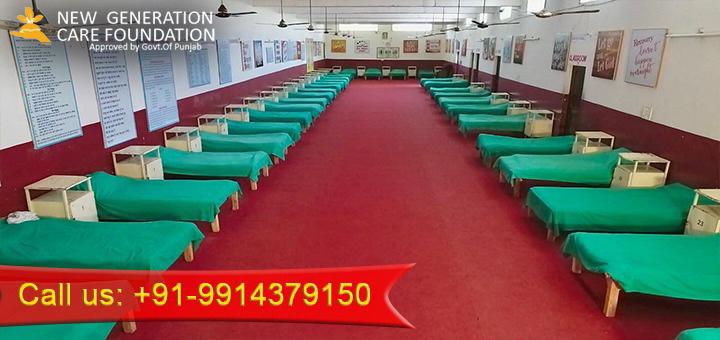173 total views, 1 views today
Starting the path to addiction treatment is a life-changing experience that calls for a thorough and organized approach. The 12-step strategic treatment strategy at our Leading Nasha Mukti Kendra in Solan is a well-established and proven program that has gained widespread recognition.
Now, it is the cornerstone of many addiction treatment programs across the globe. At our Leading Nasha Mukti Kendra in Solan, we help the customer with a 12-step strategic therapy approach, analyzing the importance of each stage and its comprehensive effects on those pursuing long-term recovery.
Understanding the 12 Steps: A Holistic Path to Recovery at our Leading Nasha Mukti Kendra in Solan
Step 1: Admitting powerlessness
Acknowledging one’s helplessness over addiction is the first step in the path. People can gain acceptance and self-awareness by facing the truth about their substance abuse.
As a first step in recovery at our Leading Nasha Mukti Kendra in Solan, this one establishes the foundation for humility by helping people realize when they need outside help.
Step 2: Accepting a Supreme Being
The acceptance of a higher power is fundamental to the 12-step program. This level promotes acceptance of spiritual direction, which builds resilience and optimism in people.
It emphasizes the significance of looking for strength from sources outside of oneself and recognizes the transforming influence of faith in the process of our Leading Nasha Mukti Kendra in Solan.
Step 3: Surrendering to the Process
A turning point is when one gives themselves up to the care of a greater force. It is letting go of power, ego, and the delusion of independence.
People who do this give themselves over to the healing process, which transforms them and helps them become more accepting and humbler.
Steps 4–7: Self-Evaluation and Corrections
The emphasis of steps four through seven is on self-evaluation, admitting faults, and offering forgiveness.
This reflective stage entails taking an unafraid moral inventory, owning up to wrongs, and getting ready to alter one’s behavior significantly. Personal responsibility and the readiness to own up to mistakes made in the past are emphasized.
Steps 8–9: Making corrections
With a focus on taking immediate action, these phases deepen the process of making amends. People own up to the people they have hurt, apologize, and work hard to mend fences.
Restitution turns into a life-changing experience that promotes recovery for the offender as well as for people who were impacted by their behavior.
Step 10: Continuous Introspection
To ensure that people take responsibility for their actions, Step 10 promotes ongoing self-evaluations.
This continuous introspection fosters personal development and keeps animosities or negative behaviors from accumulating. It cultivates an enduring dedication to self-enhancement and consciousness.
Step 11: Using prayer and meditation to grow spiritually
Step 11 is prayer and meditation, which are essential to spiritual development. People develop a relationship with their higher power, which allows them to have clarity, peace, and a purpose that goes beyond the difficulties of recovery. To live a balanced and focused life, this phase highlights the significance of spiritual practices.
Step 12: Being of Assistance to Others
Step 12, which completes the circle of recovery, highlights the transformational potential of service to others. People who support and share their experiences with others not only help themselves but also the sober community as a whole.
This phase demonstrates the idea of giving back and improving the process of recuperation. Call our Leading Nasha Mukti Kendra in Solan.

0 Comments Leave a comment